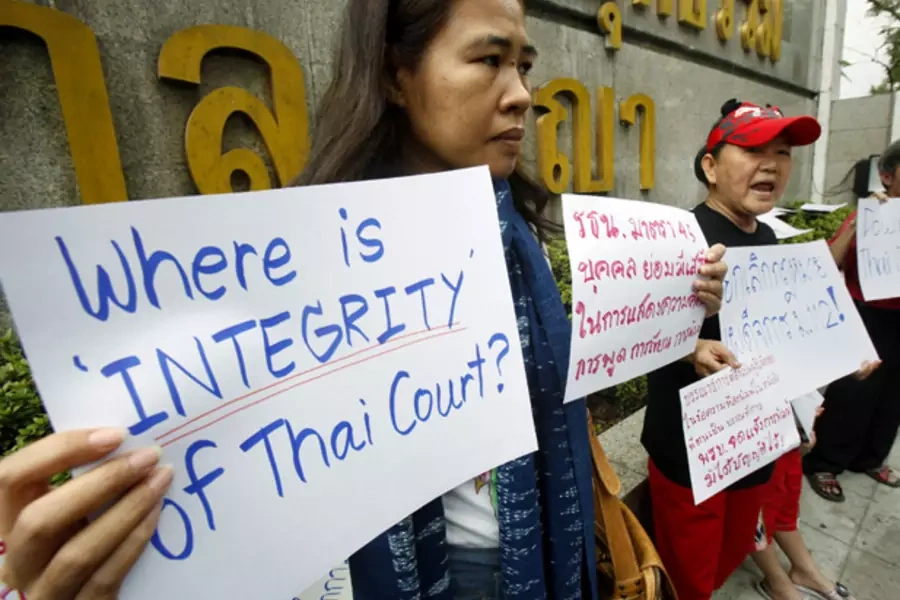Thailand’s Lèse Majesté Law Descends Further

More on:
Yesterday the prominent Thai editor and activist Somyot Prueksakasemsuk was sentenced to ten years in jail for publishing articles allegedly offensive to the Thai monarchy, under the draconian lèse majesté laws Thailand has in force. Bangkok-based blogger Saksith Saiyasombut has a fine overview of the scene in the courtroom as the judges read out their verdict, to the protests of several hundred observers, including other rights activists.
There has been extensive media coverage, both inside Thailand and in the global press, of this case, and yet the defendant was given a jail term considered harsh even by the ridiculous standards of the lèse majesté law, which allows anyone—not just the monarch —to file lèse majesté charges against anyone else, and so has turned into the most potent political weapon to use in Thailand today. The fact that all of this international coverage, and observers, made no difference shows how thoroughly Thailand has departed from international norms on freedom of expression, and how little the lèse majesté witch-hunt has changed under the government of Yingluck Shinawatra, despite many Thais’ hopes that the political environment would cool off, at least for a time.
More on:
 Online Store
Online Store
